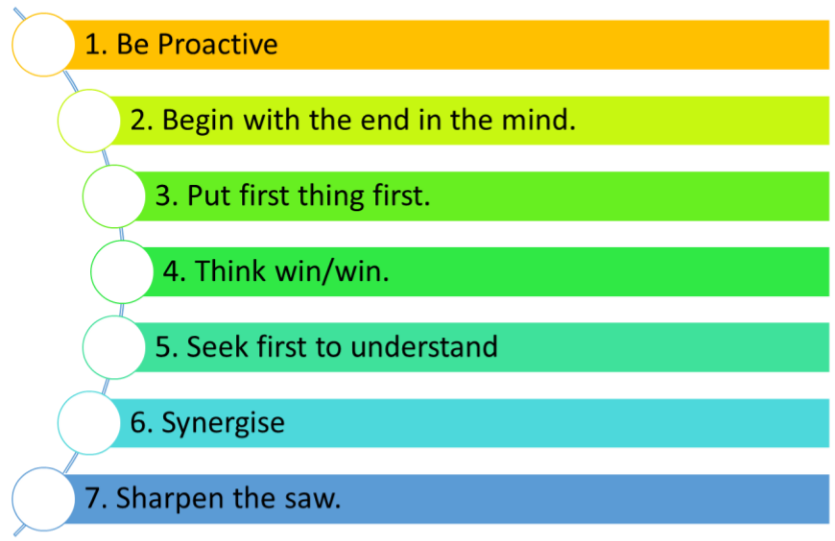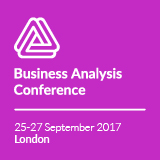
This article is a reflection on my experience at the BA 2017 Conference in London last month, I found it amazing and worth attending as it provided me with the opportunity to listen, learn and network with delegates from many countries and organisations. It helped broaden my knowledge and perspective about business in general and business analysis in particular. I thought it would be worth sharing some of my key findings at this conference.
1. Assertiveness – a trait a BA must possess!
Saying ‘NO’ is always tough and many of us end up saying ‘NO’ at the wrong time or wrong place or in a reactive manner in feat of anger, frustration or rejection.
Many times we need to display assertiveness. Examples are:
- being asked to accept a scope/requirement creep,
- expected to work overtime,
- meeting getting delayed/postponed by stakeholders etc.
How do we say ‘NO’ in a manner that it is taken positively?
Answer is to say it in with assertiveness.
Then what exactly is ‘assertiveness’?
One thing for sure, assertiveness is neither being aggressive and nor being submissive. Certainly it is also not ‘being apologetic’ or ‘being emotional’. Assertiveness needs to be learned and practiced so keep being assertive and learn from mistakes. One of safe way to practice it is when you need to show your assertion for bad customer experience moments at a restaurant, delivery company or shops.
Aspects of assertiveness you need to focus are:
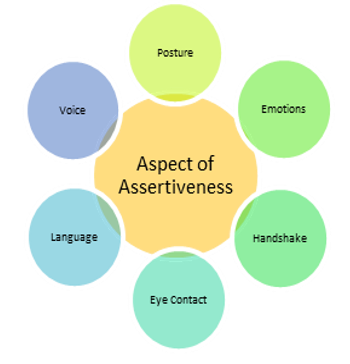
2. Top Trumps card play with BA techniques!
I really enjoyed playing this game and creating Trump cards for different business analysis techniques. This is a very creative and collaborative way to learn and evaluate different BA techniques with different rating factors. Regular play in teams will help in using the right technique at the right time. Many times we know lots of technique but we don’t use all of them in our day to day BA jobs.
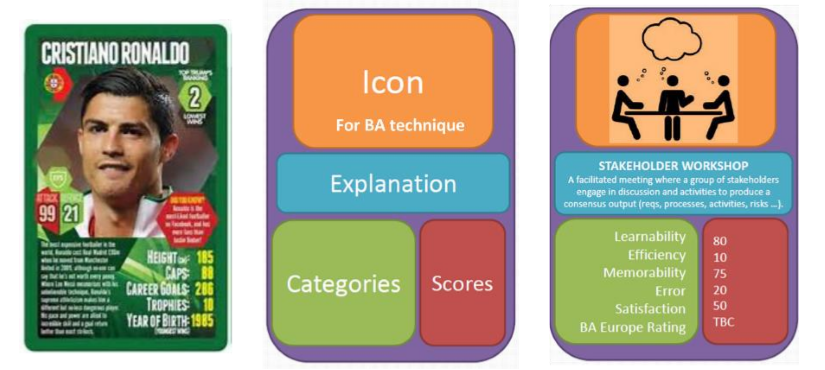
Key rating factors for evaluating usefulness:
- Learnability: How easy a technique was to learn to perform it? Did you take a long time to learn it? Would anything have made it easy?
- Efficiency: How quickly can you do this? Do you take longer than others?
- Memorability: How easily could you remember it if you have not used it for along time?
- Error: Are you prone to make mistake while doing a technique? How difficult to correct the mistake ?
- Satisfaction: How helpful is it to be able to do this? How often do you need to do this?
3. System Thinking – A crucial skill for complex & uncertain projects or world at large!
Systems thinking helps gain a holistic understanding of a system by examining the linkages and interactions between the components that comprise the entirety of that defined system. Taking a linear approach to understanding cause & effect of any complex problem or complex solution will lead to further problems & issues. You may also end up wasting resources and time without achieving a lasting solution.
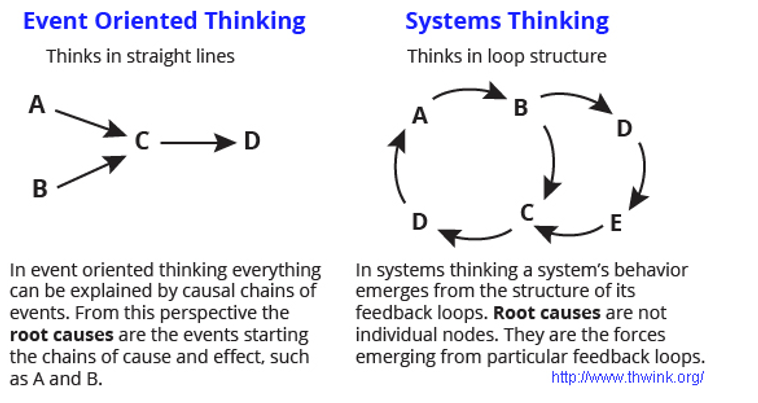
It is essential to acknowledge and challenge boundaries and perspective to bottom out the root cause.
4. The Socratic Method – how relevant for Business Analysis!
Some key lessons for business analysts from a Socratic method are:
- It is not what you know but the questions you ask.
- Never take the first answer.
- Don’t push it.
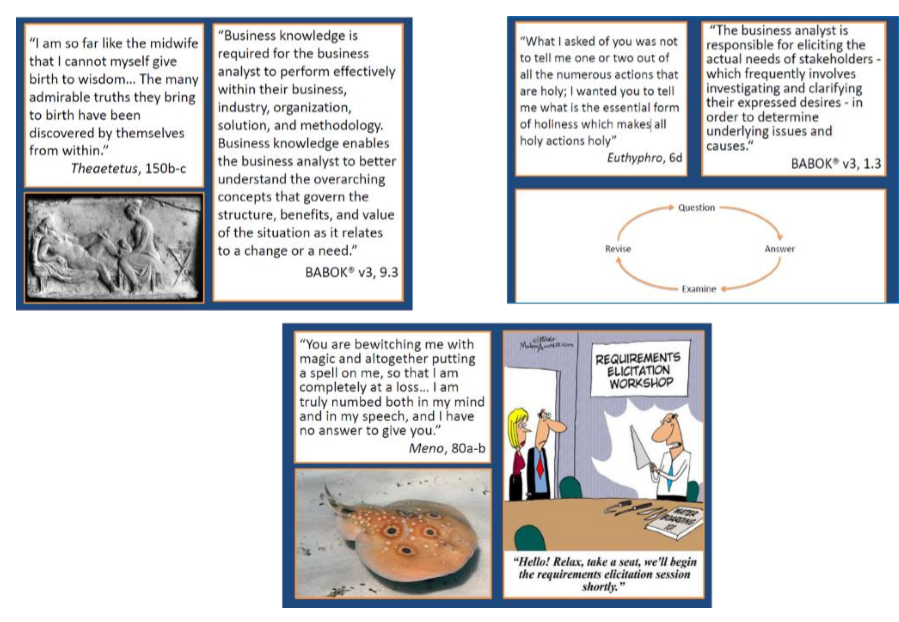
5. Business Change Management – an opportunity for BA!
Traditionally BA’s are mostly involved with the project delivery side and the BA does a supportive role to the Change manager for embedding the change. However the skill sets, experience and techniques BA’s possess are quite fit for leading Change Management and getting change adopted by people.
Any failure of adoption and usage of the solution will lead to failure in delivering the benefits hence people side of change needs great attention, focus and planning.
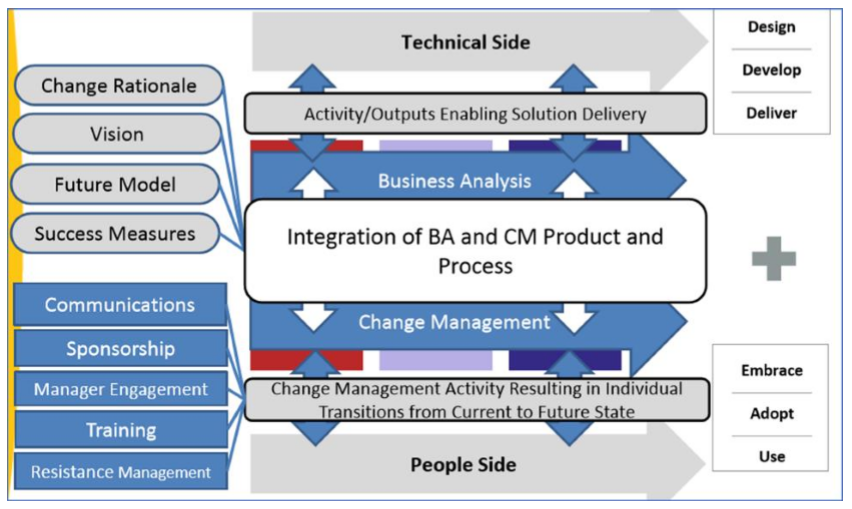
6. The Seven Habits of Highly effective business analyst
I always try to find answers for how I can become more effective and a better performing business analyst. The 7 habits explained during this talk I attended really answers this question and as well as an individual person.
